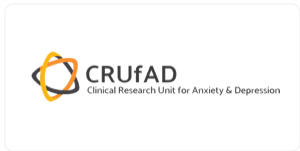How To Boost Student Wellbeing As A New Year Begins

A new year of student life is beginning!
Starting your first – or another year of university, TAFE or college is an exciting milestone and is likely to be one that you’ll look back on with fondness for many years to come. You’re taking the steps towards your future career, making new friends and enriching your mind – well done, YOU!
However, this period of life is not without its stressors and your wellbeing can take a toll. It can be a big leap going from high school to higher education with many changes, especially at first.
If you are partway through your course, a new academic year can mean an increased workload and expectations to perform. Here are some helpful tips to boost your student wellbeing so you can start the academic year on the best foot possible and hopefully avoid the dreaded ‘student burnout’.
Effective Time Management For Students
Trying to balance your many demands can be one of the most stressful parts of student life. Good time management can help you juggle your many responsibilities, so that they don’t feel as overwhelming.
Effective time management skills include:
- Breaking tasks down into smaller steps
- Setting deadlines for each of these steps
- Scheduling your study time
- Taking regular breaks to rejuvenate your mind
- Scheduling fun and relaxing activities
Managing Student Stress
Stress and studying go hand in hand. Some stress is useful in making you more motivated and productive. However, stress is a matter of degree – too much stress can negatively affect your wellbeing, concentration and performance. When your demands outweigh your resources, you can feel stressed and overwhelmed. Reducing your demands and boosting your resources can help lower your stress levels and improve your wellbeing.
Maintaining a Healthy Body
Sleep, diet, and exercise impact the way we feel, and how we think. Not getting enough sleep can make you feel tired, irritable and make it harder to learn and remember new information. This can make it more difficult to manage your mood and emotions. To give you the energy you need, try to:
- Eat regularly and refrain from skipping meals
- Eat plenty of fruits, vegetables, and proteins and drink plenty of water
- Try and avoid sugary, processed and fried foods
- Limit alcohol
Dealing with Study Procrastination
Most students struggle with procrastination at some point. Putting off tasks can make us feel better in the short term but when they pile up, we can feel more stressed. Procrastination is a passive coping strategy. It’s different to self-care, which involves resting, or doing fun or relaxing activities to restore your energy, so that you can come back to important activities such as studying.
Because procrastination can feel good in the moment we are more likely to do it in the future. The more you procrastinate, the more likely you are to keep procrastinating.
Here are some effective anti-procrastination strategies:
- Study scheduling
- Chunking (breaking tasks down into smaller manageable chunks)
- Trying to do just 10 minutes at a time, repeatedly
- Removing distractions
- Rewarding yourself for getting things done
Making Connections as a Student
It’s common to feel lonely and isolated during student life – especially during these strange COVID-19 times. Even though you are meeting new people, you may not feel connected to them – especially in a virtual setting. Loneliness and isolation can affect your physical and mental health, and contribute to stress. On the other hand, having meaningful relationships is essential to wellbeing.
Remember, it’s normal to feel nervous speaking to new people. Try talking to others in your classes, or joining clubs, groups or organisations at your institution or if others initiate talking to you, reciprocate to help keep the connection going.
For more tips and strategies on Student Wellbeing, take a look at our free online course.
Interested in learning more?
Free Online Tools for Coping with COVID-19
Access a suite of practical workbooks, an audioguide, and other useful materials to help you manage coronavirus stress and anxiety.





